Hi-Tech Consulting
Hi-Tech and the Cannsult Value Proposition

Cannsult Understands High-Tech Businesses
We focus on providing strategic advice and guidance to businesses operating in high-tech or technology-intensive industries. These industries typically involve advanced technologies, software development, hardware manufacturing, telecommunications, biotechnology, AI, and other rapidly evolving sectors. Our primary goal is to help technology companies maximize their potential, predict and prevent issues, overcome challenges, and stay competitive in a fast-paced and dynamic market.
Our consultants possess
Our consultants possess a combination of industry-specific knowledge, technical expertise, and business acumen. We work closely with our customers to understand their unique challenges and goals, tailoring our recommendations and strategies accordingly. Our goal is to enable high-tech companies to navigate the complex landscape of technology-driven markets and emerge as successful and sustainable businesses. We offer expertise in areas including:
Strategic Planning
We help organizations to develop and implement strategies to define and achieve their business objectives. This may involve entering new markets, launching innovative products, or expanding their technology offerings.
Market Analysis
We analyze market trends, customer needs, and competitive landscapes to help high-tech companies identify growth opportunities and make informed decisions.
Technological Advancements
Rapid technological advancements bring both opportunities and challenges for government entities. Adapting to new technologies, addressing cybersecurity threats, regulating emerging industries such as blockchain and AI, and bridging the digital divide are pressing concerns.
Social and Demographic Changes
Societal shifts, including demographic changes, urbanization, migration, and cultural diversity, present challenges for governments. Ensuring social cohesion, addressing social inequalities, providing adequate healthcare, education, and housing, and promoting inclusive policies become critical.
Environmental Sustainability
Governments face increasing pressure to address environmental challenges such as climate change, pollution, resource depletion, and biodiversity loss. Developing and implementing effective environmental policies, transitioning to renewable energy, and promoting sustainable development are key concerns.
Governance and Corruption
Maintaining transparency, accountability, and good governance are ongoing challenges for government entities. Tackling corruption, enhancing public trust, streamlining bureaucracy, and improving service delivery is essential for efficient and effective governance.
International Relations
Governments must navigate a complex global landscape, including geopolitical tensions, trade disputes, and international agreements. Building diplomatic relationships, negotiating treaties, and balancing national interests with global cooperation are key challenges.
Environmental Sustainability
Governments face increasing pressure to address environmental challenges such as climate change, pollution, resource depletion, and biodiversity loss. Developing and implementing effective environmental policies, transitioning to renewable energy, and promoting sustainable development are key concerns.
International Relations
Governments must navigate a complex global landscape, including geopolitical tensions, trade disputes, and international agreements. Building diplomatic relationships, negotiating treaties, and balancing national interests with global cooperation are key challenges.
most significant challenges by government
Specific challenges differ by country and government entity, some of the most significant changes and trends affecting government entities are:
Political and Policy Challenges
Governments often face political pressure and the need to navigate complex policy issues. Balancing competing interests, managing public opinion, and implementing effective policies can be challenging, particularly in times of polarization and ideological divisions.
Economic Challenges
Governments need to address economic issues such as unemployment, inflation, economic inequality, and sustainable economic growth. Ensuring fiscal responsibility, managing public debt, and promoting investment and job creation are continual challenges.
Technological Advancements
Rapid technological advancements bring both opportunities and challenges for government entities. Adapting to new technologies, addressing cybersecurity threats, regulating emerging industries such as blockchain and AI, and bridging the digital divide are pressing concerns.
Social and Demographic Changes
Societal shifts, including demographic changes, urbanization, migration, and cultural diversity, present challenges for governments. Ensuring social cohesion, addressing social inequalities, providing adequate healthcare, education, and housing, and promoting inclusive policies become critical.
Environmental Sustainability
Governments face increasing pressure to address environmental challenges such as climate change, pollution, resource depletion, and biodiversity loss. Developing and implementing effective environmental policies, transitioning to renewable energy, and promoting sustainable development are key concerns.
Governance and Corruption
Maintaining transparency, accountability, and good governance are ongoing challenges for government entities. Tackling corruption, enhancing public trust, streamlining bureaucracy, and improving service delivery is essential for efficient and effective governance.
International Relations
Governments must navigate a complex global landscape, including geopolitical tensions, trade disputes, and international agreements. Building diplomatic relationships, negotiating treaties, and balancing national interests with global cooperation are key challenges.
Environmental Sustainability
Governments face increasing pressure to address environmental challenges such as climate change, pollution, resource depletion, and biodiversity loss. Developing and implementing effective environmental policies, transitioning to renewable energy, and promoting sustainable development are key concerns.
International Relations
Governments must navigate a complex global landscape, including geopolitical tensions, trade disputes, and international agreements. Building diplomatic relationships, negotiating treaties, and balancing national interests with global cooperation are key challenges.
How we work with you to improve your organization
01
Discovery and Planning
02
Prepare Leaders and Infrastructure
03
Implement Daily Problem-Solving
04
Root Cause Analysis Projects
Discovery and Planning
- Understand the organization. (Type of Manufacturing, Customer/Market, Company History, Org Structure)
- Understand your organizational goals.
- Understand current challenges and risks facing your organization.
- Meet the team and understand resource constraints.
- Prepare a high-level plan including scope, timeline, resources required, and expected ROI.
- Solidify Statement of Work.
Prepare Leaders and Infrastructure
- Understand current infrastructure to support improvements. (if any)
- Identify internal Continuous Improvement Lead(s).
- Meet with each Departmental or Business Unit Leader. (in scope)
- Perform an initial Assessment to identify opportunities and to be used as a baseline.
- For each Department/Business Unit:
- Create a high-level process map.
- Identify KPIs. (aligned with Organizational goals)
- Establish Visual Performance Management. (A graphical representation of KPIs)
- Perform a Gap/Opportunity Assessment.
- Prioritize Gaps and Opportunities.
- Provide training to leaders (Sponsors, Champions) who will be supporting the Improvement Teams. (2-day training)
- Provide stakeholder training; a high-level overview of the method, tools, and terminology to ensure organizational alignment. (2-hour training)
Implement Daily Problem-Solving
Select initial areas of focus, Departments, Functions, or Work Areas. Which may include core functions, Engineering, Supply Chain, Production, Quality, etc. And/or support functions, HR, Technology, Finance/Accounting, Legal, etc.
Prioritize and scope based on impact on organizational goals, logical sequence, and resource availability.
Select initial daily problem-solving teams.
Provide training for daily problem-solving teams. (5-day training)
Implement Daily Problem-Solving and Visual Performance Management in each selected area.
Identify issues to be escalated; issues that require a higher skill level to resolve. (E.g. cross-functional issues, high complexity, high risk, high cost, etc.)
Root Cause Analysis Projects
With Departmental Leaders, prioritize escalated issues based on impact, logical sequence, and resource availability.
Select initial Root Cause Analysis (Green Belt) teams.
Provide Green Belt Training (Root Cause Analysis project training) for selected team members; Projects launched during training. (8-day training)
Provide project direction and support throughout the project duration. (Estimate 3 to 4 months for each improvement project)
Provide direction and support through project closure.
Validate improvement results and calculate ROI.
Get our Lean6sigma Certification Online
via Hybrid Platforms
Our Comprehensive Training Programs are now available on iOS, Android, and a Web platforms.

Testimonials
How our Customers React?
Have a look at how Cannsult transform their Partners businesses and help them achieve their business Goals.
Nicholas Kovacevich
Entrepreneur and Executive
Nigel Beeby
Process Engineer at MM Kembla
Kyle Stavig
CEO @ North Coast Container
Eliza G.
Specialty Raw Materials and Ingredients for Personal Care
Darril Wilburn
Sr. Partner at Honsha.ORG
Greg Burns
President - Burns AssociatesPresident
Let's Connect
Thank you for your interest in Cannsult Inc. If you have any questions or want to know more about us, please send us a message.
- (561) 890-2235
- info@cannsult.org
- Melbourne, Florida, 32940, USA

